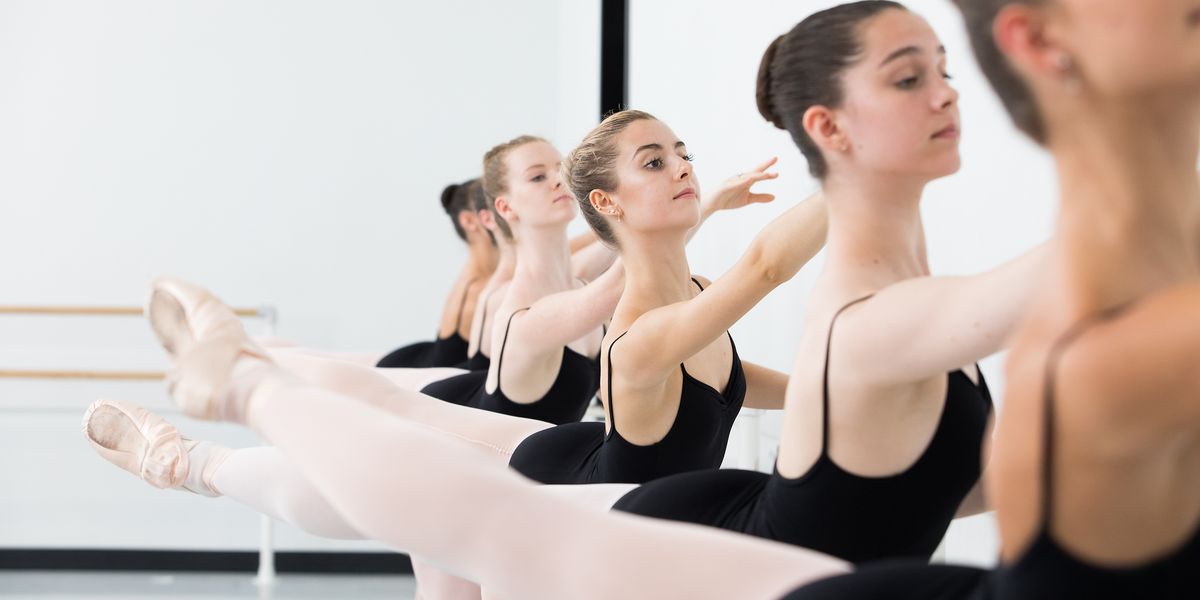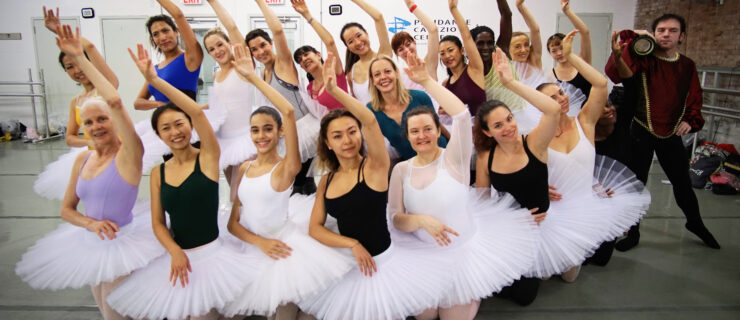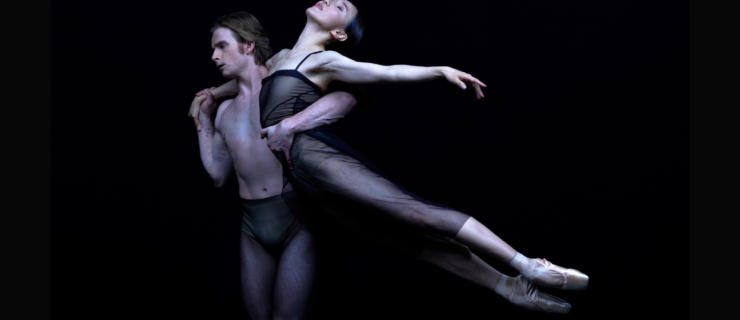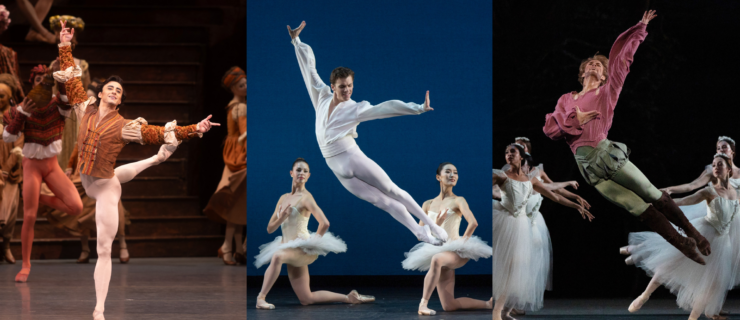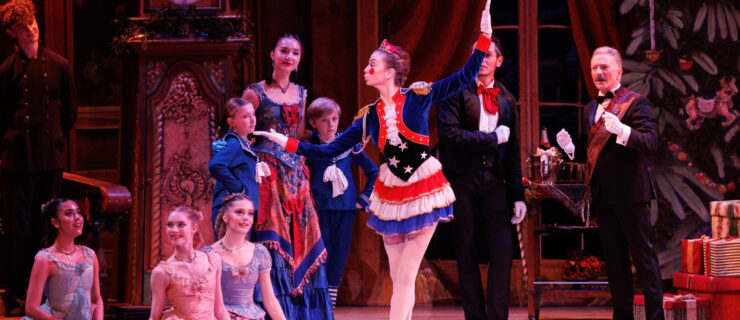Why It's Never Too Early to Start Prepping for Your Summer Intensive
While many of us are deep in Nutcracker duties, The School of Pennsylvania Ballet director James Payne has been looking further ahead, finalizing preparations for the school’s summer intensive programs. In January, he and his staff will embark on a 24-city audition tour to scour the country for the best young dancers, deciding whether or not to offer them a spot—maybe even a scholarship—in the school’s rigorous 5-week intensive focused on high-caliber ballet instruction. Though he’ll be evaluating aspirants, he urges that as a student, you should be equally selective in choosing programs that could galvanize your training—and possibly even your career.
We got Payne’s advice on strategizing your summer intensive plan before the audition cycle kicks in:
It’s December—what should students do to start planning for summer intensives now?
“All of the auditions are going to happen in January and early February, so they should do their research to find out where the schools they’re interested in are going to be and put together a plan. Don’t just show up at random auditions and do the research after. With most places you’re going to have 7-10 days to commit before you lose the spot.”
What’s your take on the train at home vs. train away question?
“That’s a controversial discussion. Some feel that kids need to get out there right away at age 11 and go to as many programs as possible. I’m not in that camp. I believe if you have really good training and you’re still on the younger end, stay home. I’m not discouraging younger students from attending a program but it’s not as important for them. They need to realize that when you’re under 13 your participation in a particular program is not going to make or break your career.”

And the argument for going away—does that get more important as students get older?
“Certainly! Kids go away for different reasons. It’s to compare yourself to other students from other places. It’s to get a fresh set of eyes on you to help with some of your training deficiencies. If you’re a couple of years out from a company decision, it’s much more important to attend a school where a trainee or studio company position is possible. You might attend the summer intensive and maybe they invite you to stay for the full year. It gives the artistic staff the opportunity to work with that student over the course of a longer period to really find out if it’s a good fit. It’s also important that even if it’s not the company of your choice, that the school trains universally, not just in one specific style. Then you’re not training for just one company.”
What other aspects of a summer program should factor into their decision?
“The city it’s located in is important. If you’re going to a city that you have no interest in at all, how much fun are you actually going to have that summer? Of course, summer’s not just about having fun. But if you’re not having a good time outside of the studio, it’s going to be difficult to have a good time in the studio. Whether or not there’s a demonstration or performance at the end of the summer is another thing. At some programs, the performance has a huge influence on what’s done during those five or six weeks. And for me, sometimes that takes over the training side. We do a demonstration, but it’s repertoire that we’ve worked on throughout the summer.”
That’s what summer is for, right, intense work in the studio?
“Yes. It’s to make ballet your sole focus for those five or six weeks. Look at the meat of the program. Is it just a long day or is it a lot of hours in the studio? Some programs say you’re there from 9 am to 6 pm, but you’re sitting every other hour. Or you’re only there from 9am to 2pm and it’s straight through. Our kids are here 9 am to 5 pm and they usually only have an hour break.”

Do you see a lot of improvement from beginning to end?
“It depends on the student. In the ones that embrace what they’re being taught, we do see a difference. One of the biggest benefits of going away for the summer is going home with inspiration, with motivation to continue the work throughout the year. Students will obviously be corrected on technical issues and perhaps hearing corrections in a different way from a different teacher may turn that lightbulb on.”
If there’s something specific you’re trying to work on as a student, is that something you can target when choosing a summer session?
“The hard thing is you can’t always find that out until you get there. When you look on websites all the programs seem to be created equal. So you should really talk to your peers. Most of the kids who have been going to summer intensives have been going for a while. There are lots of message boards out there. Take all of that with a grain of salt, use it as a collective, not just one person’s opinion, but that information is out there.”
In a school like SPB, does being connected to a prestigious ballet company influence the program?
“It does. We keep our rep consistent with what Angel Corella wants. Guest teachers are great as long as that’s not the majority of the teachers. Even though it’s only a five-week program for us, we still want to create that consistency in what we’re delivering so that they can get the greatest benefit out of it. If it’s contradicting every day, then it’s five weeks of master classes. And our curriculum definitely reflects what the company is needing. Our summer intensive is also another way we recruit for the full-year program. It allows us to work with kids on the upper end for a five-week period to see how they work.”
Should a scholarship offer be a factor?
“There are two different schools of thought on this, that if they offer you a scholarship they’re really interested in you, but that’s not the case with all schools. Some schools give out a lot of scholarships. Some don’t. Just because they don’t give you a scholarship doesn’t mean they’re not as interested. I’m talking partials. If they gave you a full ride and are paying for your housing then yeah, they’re interested. But you have to realize that the more scholarships schools give, the larger the class size is, generally.”
How big are your class sizes?
“We try to keep it in the 20s. Just because you have a huge studio doesn’t mean you throw 50 kids in there. There’s only one teacher. You have to get around to each one of those students at least three to four times in a class, which is what I try and tell my staff. Get to each student. Don’t just coach the ones you think are going to be principal dancers someday. If you have that many bodies in the room you no longer teach, you just start giving class and my staff always needs to teach.”
Any advice for auditioning students?
“When they take the audition, it’s important that they show who they are and not try to be who they think the person at the front of the room wants them to be We really want to have an honest assessment of where they are. I don’t want them to have their best class that day, I don’t want them to have their worst class. I want to see their regular class.”
After all this, how do you really figure out what the best program is for you?
“A lot boils down to their gut and that audition class. Was it purely an evaluation or did they try to motivate you? The students made the effort to come, so we have to give that back. It’s not just us checking them out, they’re checking us out. What they see in the audition is what they’re going see when they walk in our door here in Philly.”
